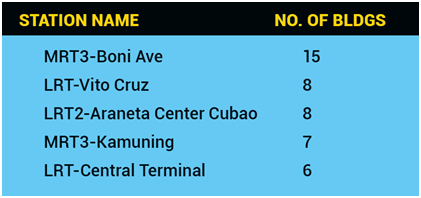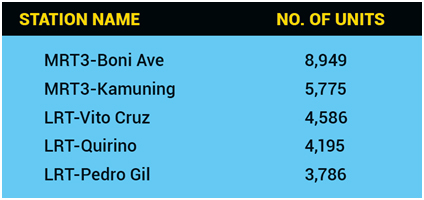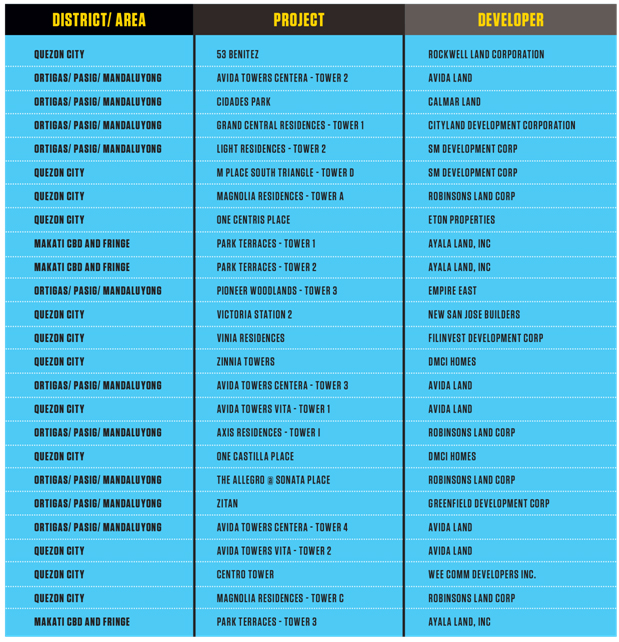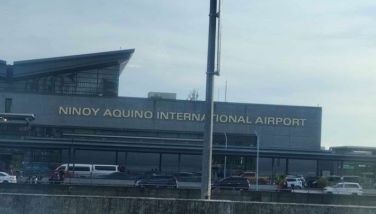Life in the fast lane: Developments near MRT and LRT stations
MANILA, Philippines - Residential condominiums, designed with the efficiency of vertical space, when linked to major mass transport systems is emerging as one of the more important solutions to the maddening commutes in congested cities especially in a megacity like Metro Manila.
Not only are travel times of residents in these condominiums drastically reduced (thus saving residents precious hours that could be spent for more productive and recreational endeavors), so are the energies expended to transport them to their intended destinations (think of the amount of fossil fuels saved because the condo resident decided instead to walk to the mall downstairs, or take the Metro Railt Transit to work). Condominiums built beside, or linked to, mass transport systems such as the MRTs and Light Rail Transit (LRTs) are called transit-oriented developments (TODs). TODs virtually combine the efficiencies (and oftentimes the luxuries, as well) of vertical living with the conveniences of mass transport systems.
In many ways, TODs make city living feel like a breeze.
Property analyst Enrique Soriano described TODs as maximizing the connection between people and their neighborhood, connecting people to jobs, nature, shops, services and, most importantly, to each other. He added that TODs save its residents their second largest expense: Transportation. As an indirect result, TODs help lessen traffic congestion, enhances road safety and public health, and even creates a larger tax base.
With all the advantages that TODs offer, are they actually that prevalent, at least in Metro Manila?
Colliers International Research revealed that out of the 1,143 condominium buildings in Metro Manila in its database, only about 101 could be considered TODs. These buildings are comprised of almost 57,000 units. These developments were identified using the definition of ideal walkability as a radius of ¼ mile or 400 meters. “Using this definition, we drew radii of 400 meters around all LRT and MRT stations and identified the condominium buildings inside the radii,” said Colliers.
Colliers further revealed that LRT1 (Baclaran to Roosevelt via Taft Avenue) has 29 buildings within its walkable reach, LRT2 (Recto to Santolan via Aurora Boulevard) has 31, while the MRT (Baclaran to North Avenue via Edsa) has the most at 44.
In the chart provided by the office of Julius Guevara, director and head of Colliers International Research and Consultancy and Research and Advisory Services, the stations that have the most number of buildings within walkable range are MRT-3 Boni Avenue followed by LRT-Vito Cruz and LRT2-Araneta Center Cubao.

On the other hand, the stations with the most number of condominium units are:

There are stations, however, with no condominium developments at all. These are understandable in highly dense but low-income areas such as north Manila and Caloocan along the LRT1 line. However, there are areas in Taft Avenue that could be ideal for TODs, but the lack of developable land hinders such developments. Perhaps worsening traffic conditions would push TOD development into these areas and gentrify them in the future.
2015-2017 mid- to high-end TODs
If you think these are all transit-oriented developments nearMRTs and LRTs that Metro Manila has to offer, check out the list that Jones Lang LaSalle Philippines Inc. has provided. Claro dG. Cordero, Jr., JLL’s head for Research, Consulting and Valuation, provided MyProperty the list of transit-oriented high-end condominium developments in Metro Manila scheduled for completion from 2015 to 2017.
List of Select Upcoming Mid-Range to High-End Residential Condominium Developments in Metro Manila: 2015-2017 (Within 1 kilometre from the LRT/ MRT station)

Learn more about these projects and their developers. Visit our website and find a home close to LRT and MRT stations.
Source: MyProperty.ph Magazine, July-September 2014
- Latest
- Trending

























